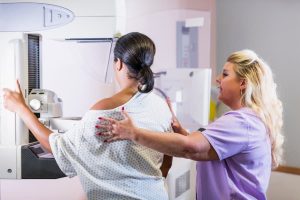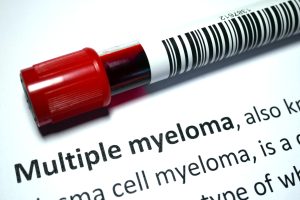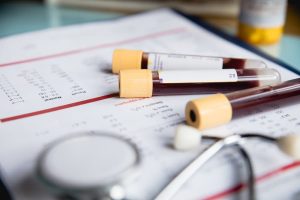
How Does a Diagnostic Mammogram Differ from a Screening Mammogram?
Regular mammograms are an important part of women’s health care. A mammogram is the best way to detect breast cancer before it grows and spreads,
HIPAA Alert: Potential Data Breach Learn More
Questions on Oncology, Hematology and/or Infusion Clinical Services due to COVID-19 Crisis – CALL 833-698-1623
Important Information for Our Patients Regarding the Coronavirus.
RCCA Providing Area Cancer Patients with Access to Care During Coronavirus Outbreak
RCCA Offering Patients Virtual Visits During Coronavirus Pandemic
The causes of kidney cancer are unknown, but we do know that the disease starts when a group of kidney cells develops DNA mutations that begin to rapidly grow and divide. These cells grow to form a tumor and can even spread, or metastasize, to other parts of the body.
To help patients living throughout New Jersey and Connecticut better manage their health, Regional Cancer Care Associates makes patient education a priority. By learning about kidney cancer causes and risk factors, you can take steps toward proper prevention and treatment.
The direct causes of kidney cancer are not completely understood. In light of this, researchers have identified several risk factors that can increase peoples’ risk of developing the disease. Some of these relate to lifestyle and can be managed with simple changes, including:
Smoking
Smoking positively correlates with the risk of developing renal cell carcinoma (RCC). The more a patient smokes, the more heightened his or her risk. Patients can reduce their risk by quitting, but it takes several years for a patient’s risk level to match the lower level of a non-smoker. In other words, the sooner a patient quits smoking, the better.
Obesity
Being overweight (having a body mass index, or BMI, of 25 kg/m2 or higher) or obese (having a BMI of 30 kg/m2 or higher) elevates risk for developing RCC. Obesity causes certain hormonal changes to occur in the body, and some researchers believe that these effects lead to RCC. Therefore, a healthy diet and exercise regimen is vital to decreasing this risk.
Workplace Exposure
Those who experience workplace exposure to certain substances – including trichloroethylene, an organic solvent used as a degreaser or in refrigeration – are at an increased risk for developing RCC.

Biological kidney cancer risk factors – from the genes you were born with to your heritage – are beyond your control. Other biological risk factors include:
Sex
On average, RCC is about twice as common in men as it is in women. This difference may be explained by the larger percentage of men who smoke and are exposed to workplace chemicals.
Race
African Americans are slightly more likely to develop RCC than Caucasians. The reasons for this difference are unclear.
Age
The likelihood of developing kidney cancer increases with age.
Genetic and Hereditary Factors
In some people, certain genes can increase their likelihood of developing specific types of cancer. For this reason, at-risk individuals must undergo the necessary screening procedures to keep themselves protected.
Current medical conditions, as well as patients’ family histories, can also increase the risk of kidney cancer. These risk factors include:
High Blood Pressure
The higher a patient’s blood pressure, the higher the risk of developing kidney cancer. Unfortunately, taking blood pressure medications does not decrease the risk.
Family History
Patients who have a strong family history of renal cancer have a higher risk of developing it themselves. This risk is highest for those who have a brother or sister with the disease.

Even if you have one or more of these risk factors, you may never develop cancer. Rather, think of these factors as screening tools that at-risk patients can use to stay healthy, with help from Regional Cancer Care Associates. With more than 31 locations across New Jersey and Connecticut, we make it easy to get screened and treated for many types of cancer. To schedule an evaluation, contact a location near you today.

Regular mammograms are an important part of women’s health care. A mammogram is the best way to detect breast cancer before it grows and spreads,

Multiple myeloma (MM) is a rare type of blood cancer that often develops without early symptoms, making awareness of risk factors essential. Regional Cancer Care

Bleeding disorders are a group of hematologic conditions that occur when blood is unable to clot properly. The inability to form blood clots following a

Regional Cancer Care Associates is one of fewer than 200 medical practices in the country selected to participate in the Oncology Care Model (OCM); a recent Medicare initiative aimed at improving care coordination and access to and quality of care for Medicare beneficiaries undergoing chemotherapy treatment.